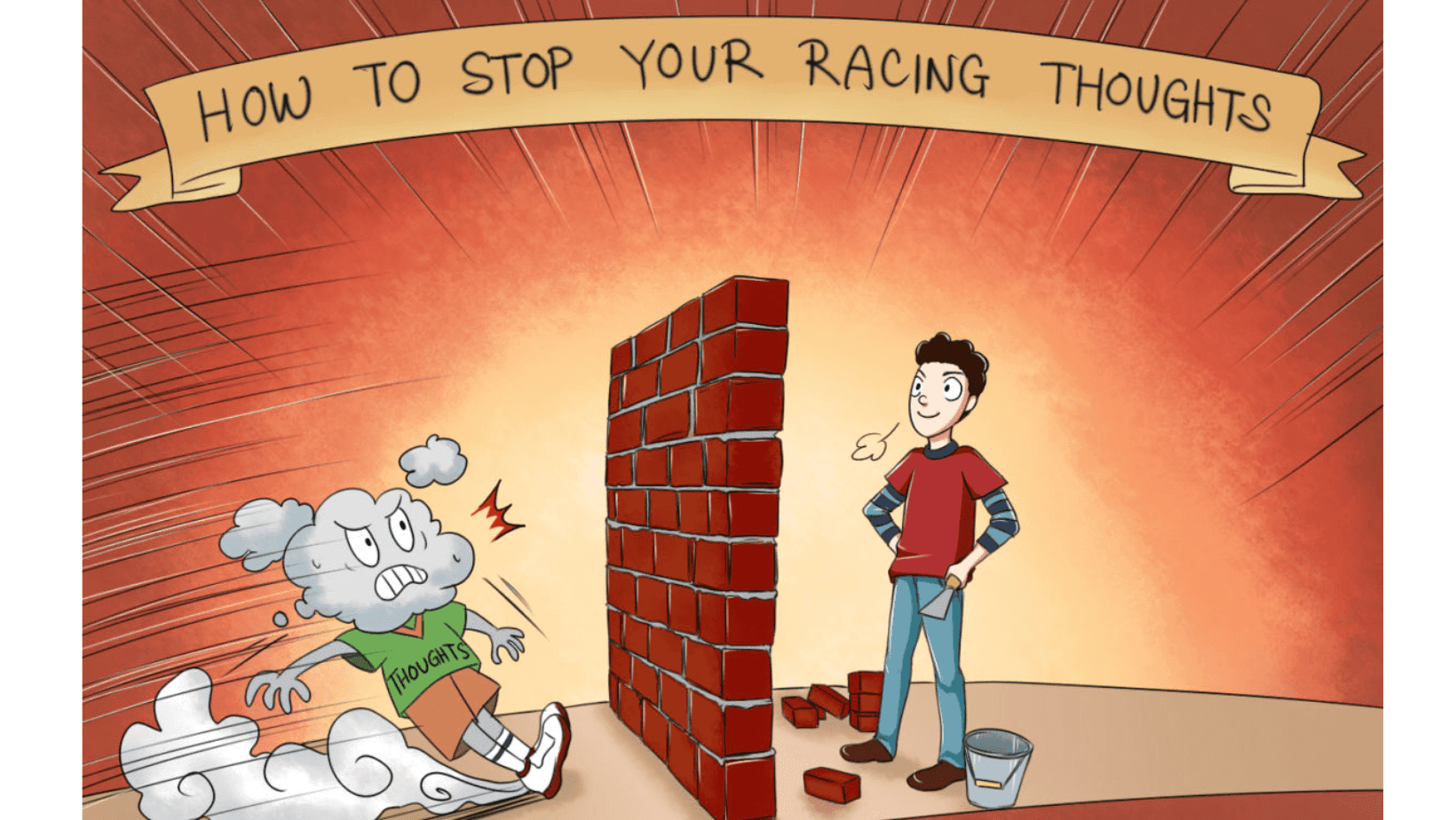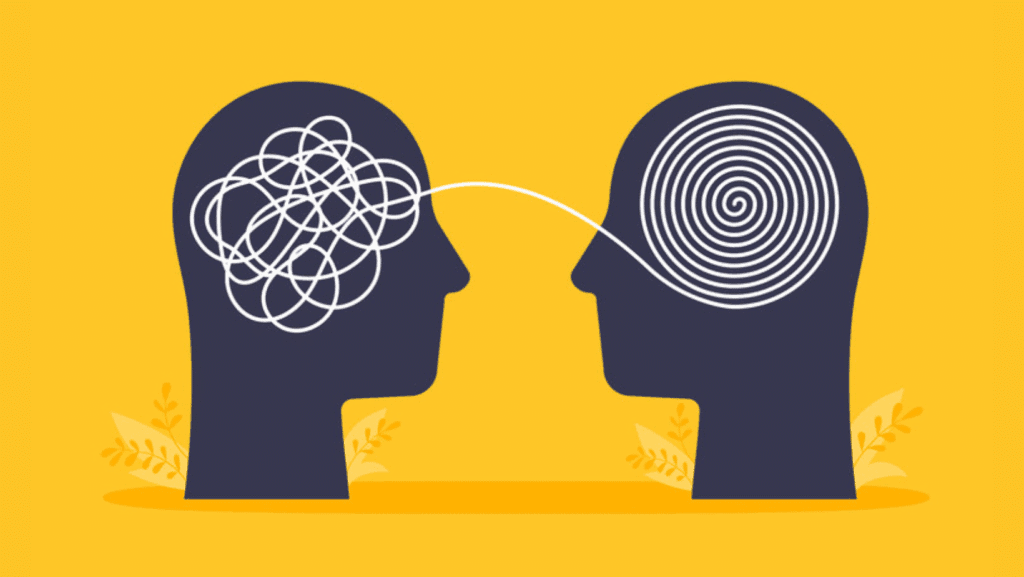
Understanding the Actively
Do you know, your brain is a great tool. It helps you plan. It helps you problem-solve. Yet there are times when it shifts into overdrive and won’t let up. This can happen for a number of reasons.
Stress is a variable. Anxiety contributes to the mix. Also, prior experiences can impact what’s happening. Our brains are designed to ensure our survival. Our brains are wired to look for threats. Unfortunately, that generally leads to overthinking, like an alarm bell stuck in the “on” position.
The Psychology of It
Psychology helps. Our brains have a “default mode network,” and they activate when we are not focused. It is the mode where our mind wanders. This mechanism also produces self-referential thoughts, or those “me” thoughts that can become circular and repetitive. This can amplify feelings of negativity. Cognitive behavioral therapy (CBT) is a solution here. It teaches you to challenge your thoughts, identify distorted thinking patterns, and replace them.
Also, we can’t downplay the importance of mindfulness! Mindfulness is being aware in the present moment and being an observer of your thoughts in the present, without judgment. You distance yourself by observing your thoughts as just one of the components of life. There is a difference- you are not your thoughts. They are simply mental events. Acceptance and Commitment Therapy (ACT) builds off of this with the idea of accepting the thoughts you don’t want to have. Then you develop and commit to actions based on your values to live an authentic life. You do not fight your mind; you work with it.
Read more: 8 Mind Games Society Plays on You

Practical Steps to Quiet Your Mind
Would you like to find some peace internally? Here are some basic steps:
- Breathe slowly and deeply.
Breathe in through your nose. Count to 4. Hold your breath. Count to 4. Breathe out through your mouth. Count to 6.Repeat.Deep Breathing tells the brain, “I am safe.” - Notice Your Surroundings.
Look at things close to you. Take notice of the colors, sounds, smells, and textures. This grounds you back in the present moment. Also,it stops the mind from running away. - Move your Body.
Yoga. Moving bodies release happy chemicals in the brain. It also provides a break from internal noise. Walk. Stretch. Dance. Do. - Journal Your Thoughts.
Don’t keep things inside. Put those thoughts on paper. It will help to feel less heavy. Sometimes, while journaling, it is where the answers come from. - Decrease the Caffeine.
The caffeine in coffee or energy drinks increases anxiety. Try to cut back and notice how you feel. Observe your body – your body will tell you the story. - Get Outside.
Find some dirt, grass, or trees. Sit next to a tree and feel the breeze? Listen to the birds. Even a few minutes in nature does the soul good. - Use Your Hands.
Draw. Bake. Paint. Knit. When using our hands, it gives our brains something to focus on.So, it calms our internal world.

ISLAMIC WISDOM FOR INNER PEACE
Tawakkul
It is an integral teaching within Islam. It is how to remember to rely on Allah; to entrust your affairs to Him. To do the best that you can do, and then pull back. Also, the burden is immense. You rely on His plan; you do not have to worry. So, your anxiety ebbs about what is next.
Salah
(Prayer) is also a crucial and central pillar. You have a direct connection to your Creator. During Salah, there is nothing else on your mind. When was the last time you focused on something entirely? One might also say, when was the last time you showed humility? Salah is also a very effective mental cleanser. It breaks your day into manageable pieces, giving you five opportunities for grounded peace.
Du’a
(Supplication) is like Salah but different, and really, just as important. You are asking Allah for help, and you are pouring out your heart to Him. You are expressing our fears; your hopes. The process of asking is freeing, because to ask shows dependence and faith. Hence, when you ask, you are engaging in a form of collective sustainability, growing your own grounded resolve.
Patience
(Sabr) is great. Life can be troubled. Thoughts are troubled too. Sabr means to endure and to accept it gracefully. Sabr means to persist. Also, sabr is to trust Allah in His Wisdom. It builds resilience. Hence, it allows you to navigate through.
Gratitude
(Shukr) reframes your perspective. Put your focus on blessings. Recognize Allah’s favors. It shifts your mind. You move from deficiency to sufficiency. You orient towards what you have with contentment. It creates less negative thinking.
Read more: 5 Truths About Your Inner Voice
Creating a Quiet Mind Practice
Learning to quiet your mind takes practice. Just like developing a muscle. Take tiny steps, and be regular! Most importantly, do not give up. Some days are going to be more difficult, which is fine. Be as kind to yourself. Also, recognize your small victories! Over time, you will notice a difference. You will begin to feel less weight on your mind, create a little more peace, and your life will begin to change. Embrace the journey! So,find your inner calm – it is at your fingertips.

Keep practicing and don’t give up.
Quieting your mind is a process. It takes time, and it takes effort. It isn’t something you can make happen overnight. Like a muscle, you need to train regularly. Some days will feel easier; other days may feel harder. Regardless, be gentle with yourself. Acknowledge the little victories you achieve. Take the time to notice when you feel somewhat better. Your thoughts are not the enemy; they are part of the journey of life.
You have the power to navigate your thoughts. Over time, you will create a lighter experience of your internal world. You will feel calmer within yourself. Over time, your outside world will begin to shift, one step at a time.
Hence, Allah is always close to you. He will also know what is occurring when your mind is being bombarded with distractions.
“And we are closer to him than [his] jugular vein.” (Surah Qaf 50:16)



Leave a Reply